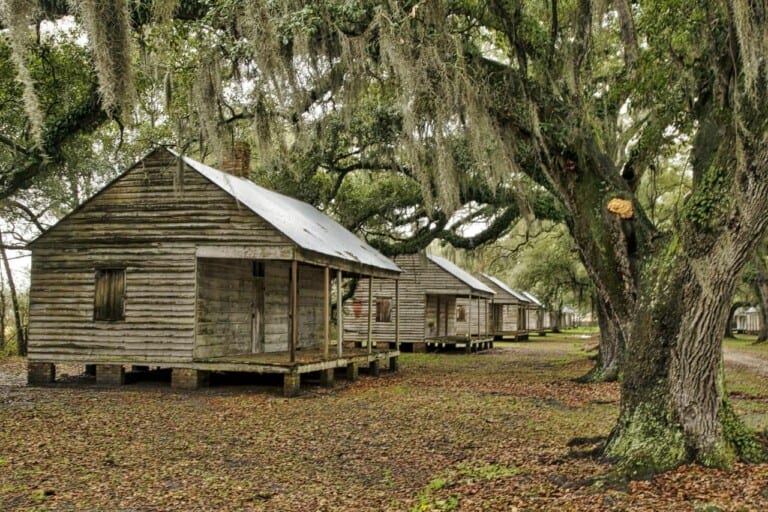Introduction
Most slaves were forced to work long hours under close supervision. Most slaves could rely on their masters for basic welfare: clothes, food, and shelter.
On many plantations, slaves grew their gardens and some even enjoyed a few holidays or received some rewards.
Subjugation and resistance
Concerning the problem of subjugation, the slaveholders tightly circumscribed the world of their slaves: they had to carry passes with them when they were off the plantation and were forbidden to go out at night.
There were slave patrols, vigilant in finding offenders. Punishment was severe and quick.
As a means to prevent communication, the Slave Code forbade teaching slaves how to read and write; but about 10% of the slaves risked punishment to achieve literacy: the ability to read and write was understood to be the key to freedom.
Concerning resistance, the degree to which slaves resisted their subjugation reinforced the police state (1831: Nat Turner’s rebellion). Either they resisted or ran away.
A successful escape was very difficult. Despite the number of punishments, there were always runaways willing to take the chance of escaping and reaching the North.
Among the laws, is the Fugitive Slave Law. Resistance could take many forms: the sabotage of plantation property, the abuse of farm animals or feigned sickness. On occasions, slaves murdered their masters. But that was from the part of a tiny minority.
Religion gave them a sense of community: slaves were strengthened by religion (singing to bear labour).
Freedom and Code
Free blacks were 250,000. Many of them or their parents had been freed by their masters for acts of nobility. They held property and some owned their slaves. But legally, they were denied all civil rights by the Virginia Black Code.
Free slaves were in constant danger of being kidnapped and forced to work again. That is why many of them decided to go to the North.
The Black Code existed very early and has been declined in several versions: in 1622, 1668 and 1705. In 1705, any master was free to kill any slave and would not be prosecuted for it. In 1819, the Virginia Black Code reduced free slaves to mere property (no rights at all).
The laws became stricter and stricter as the South was more and more afraid of possible revolts. Yet, 76% of the whites did not own slaves in the South.
It should be noted that any white man was entitled to be ipso facto an auxiliary of justice, slaves being considered as cattle.
Synopsis » From the Puritan settlements to the American Civil War (1787-1877)
- Antebellum South
- Introduction to Puritanism and Expansionism
- Life in the Plantations
- USA: North and South
- O’Sullivan’s Manifest Destiny
- The social context of America in the early 19th century
- The American Civil War: 1861-1865
- America: The New Nation
- After the American Civil War: The Reconstruction
- America: West to the Pacific
- Years of Growth


hello this is a great webiste i think you have made the best wesite ever.